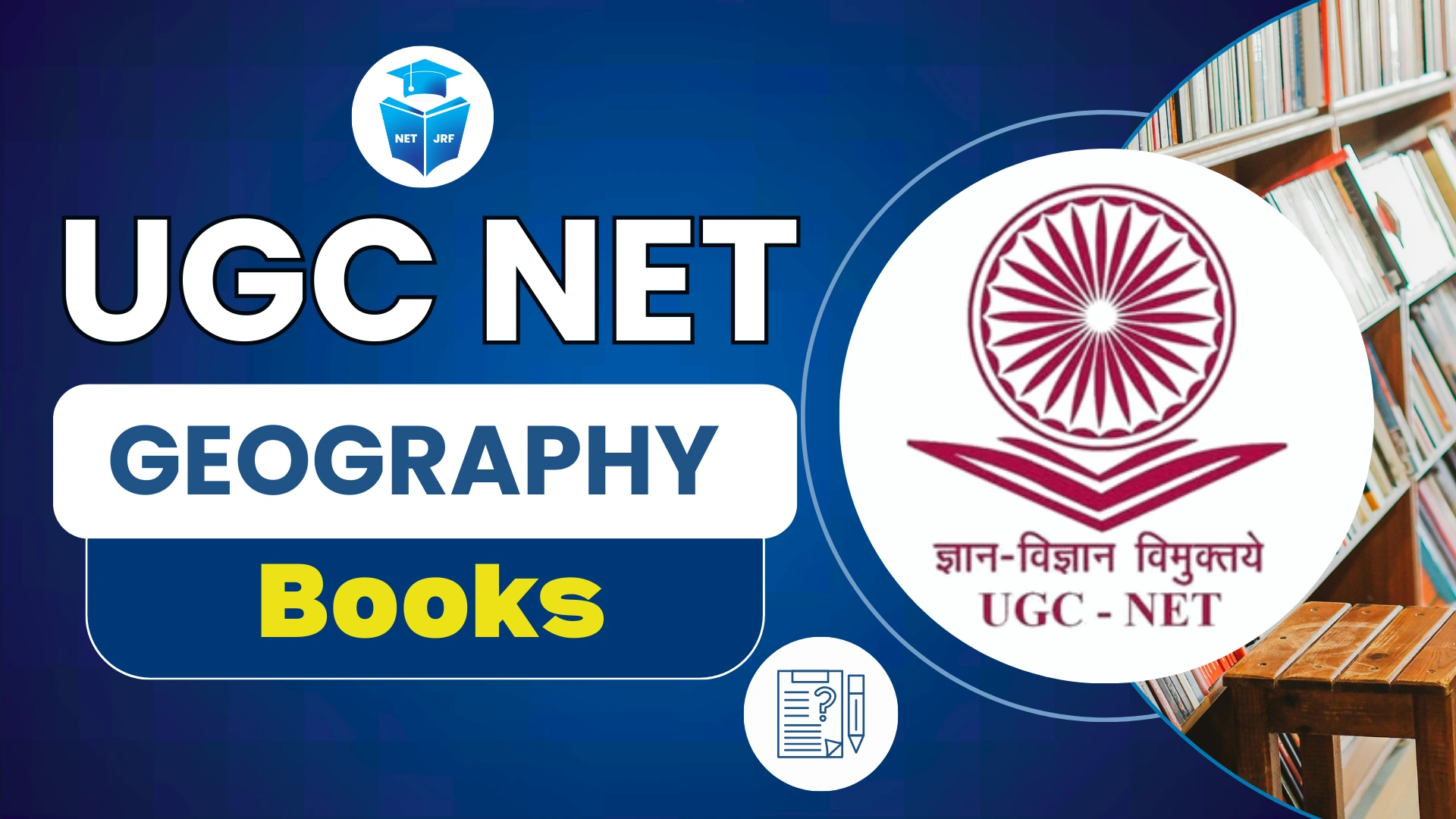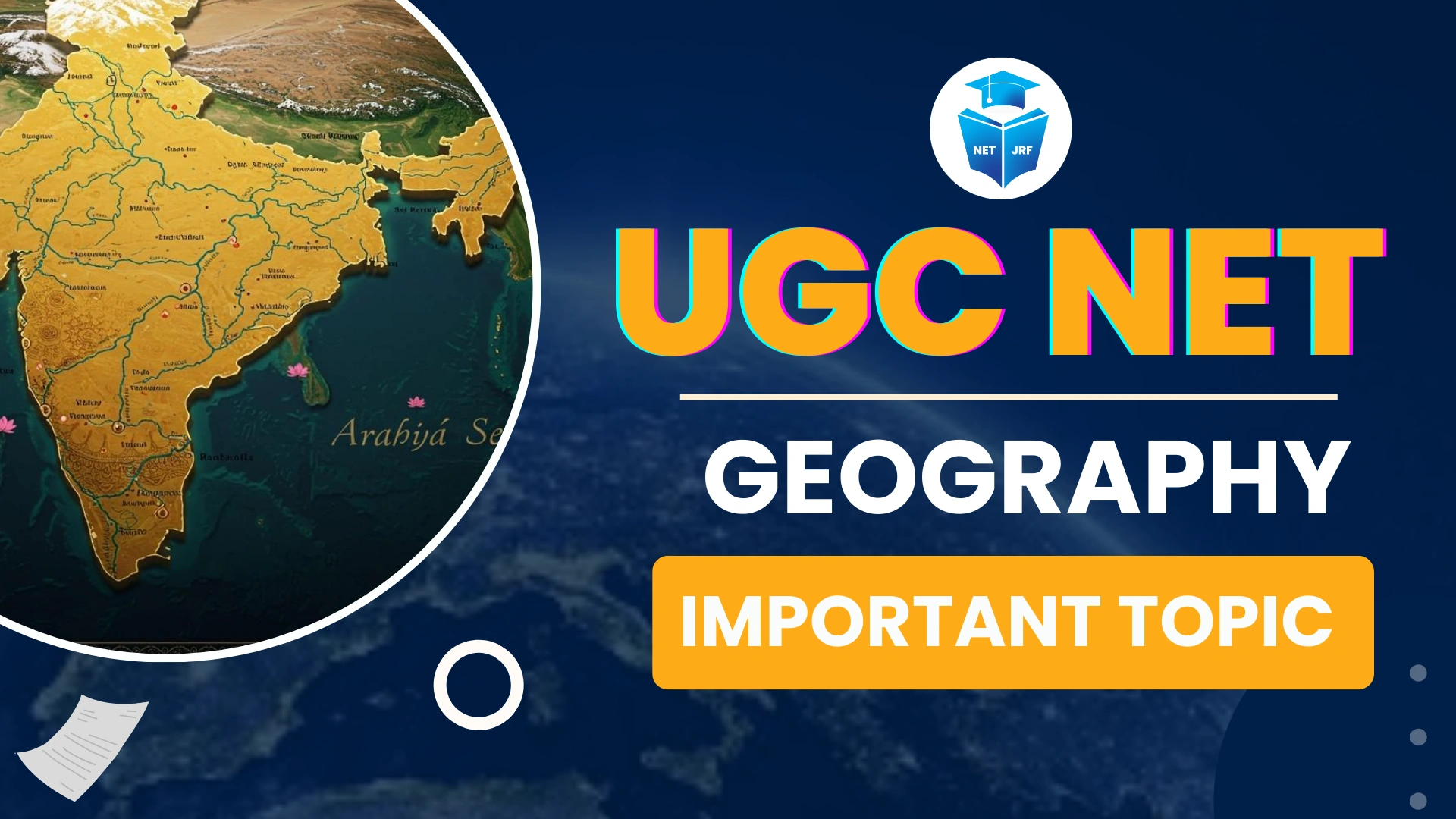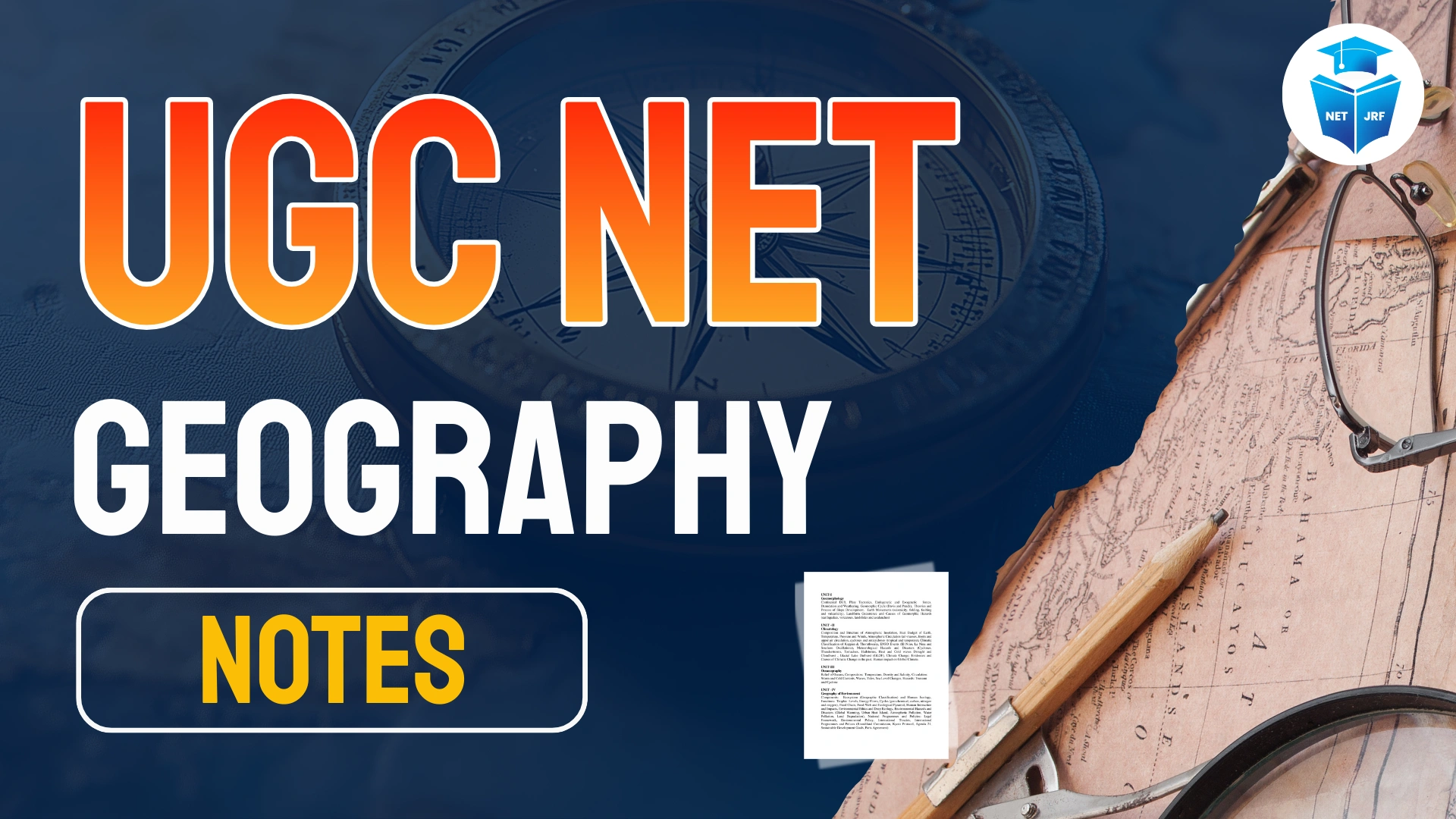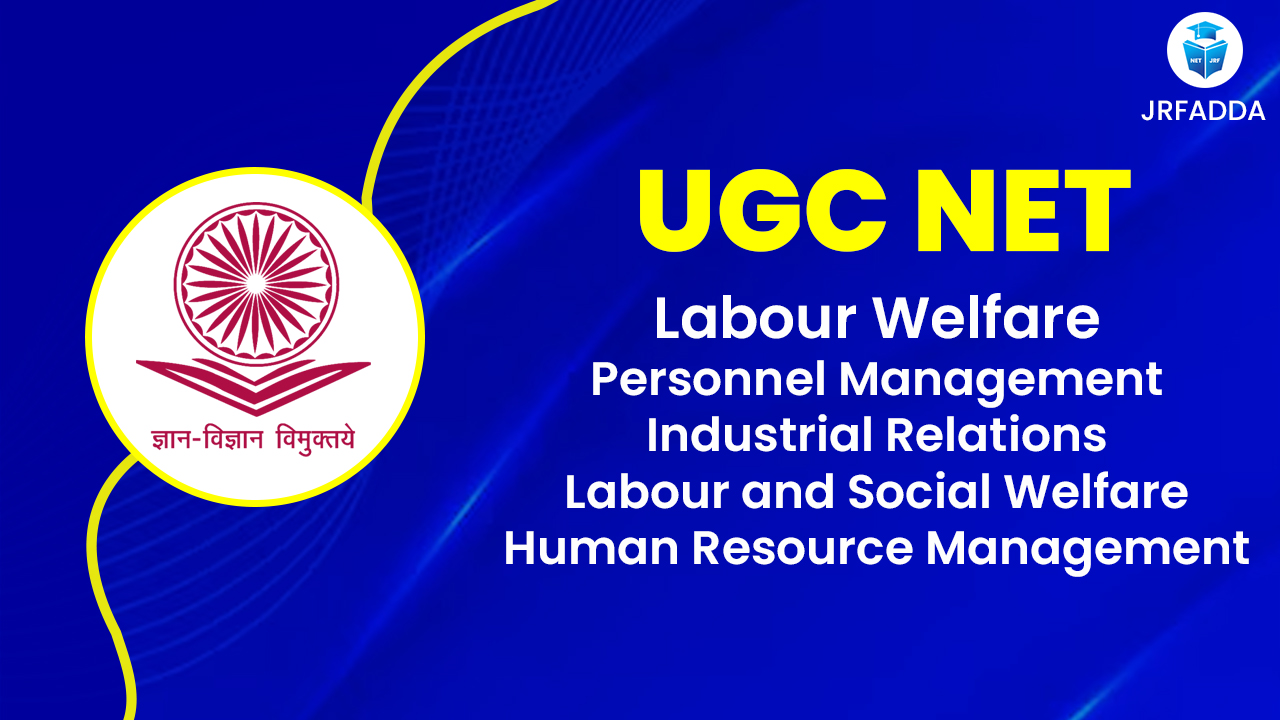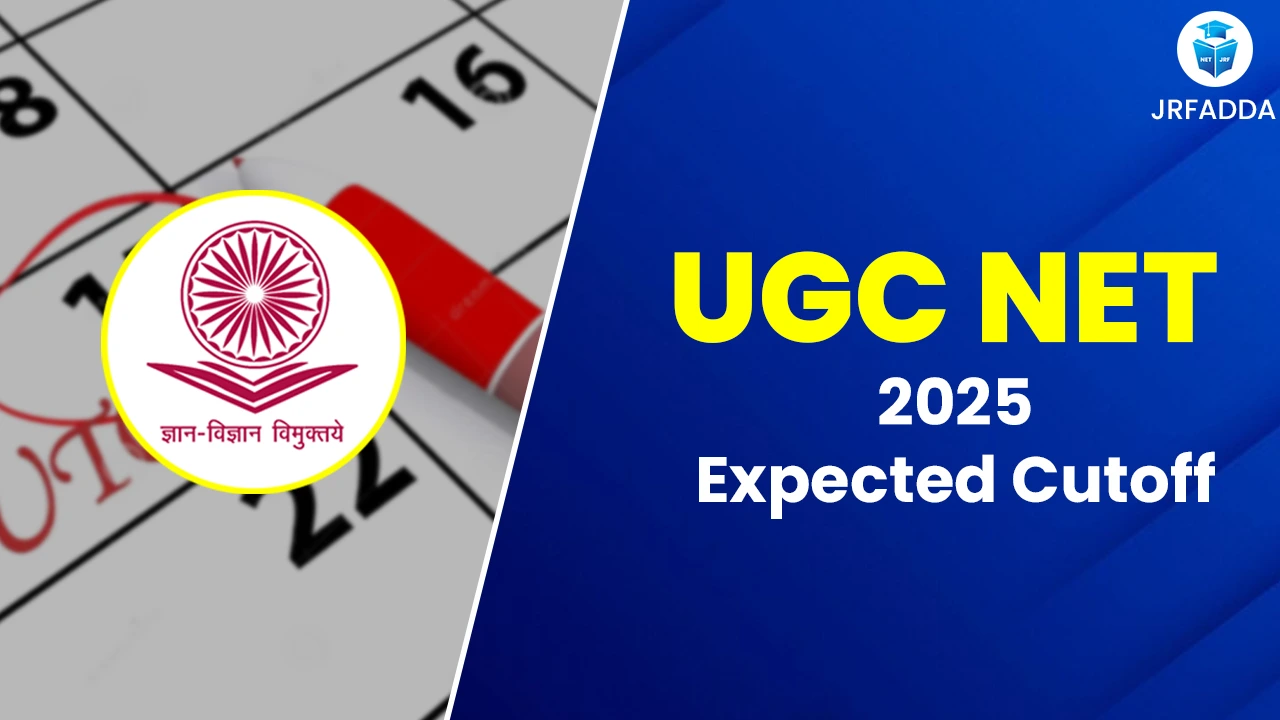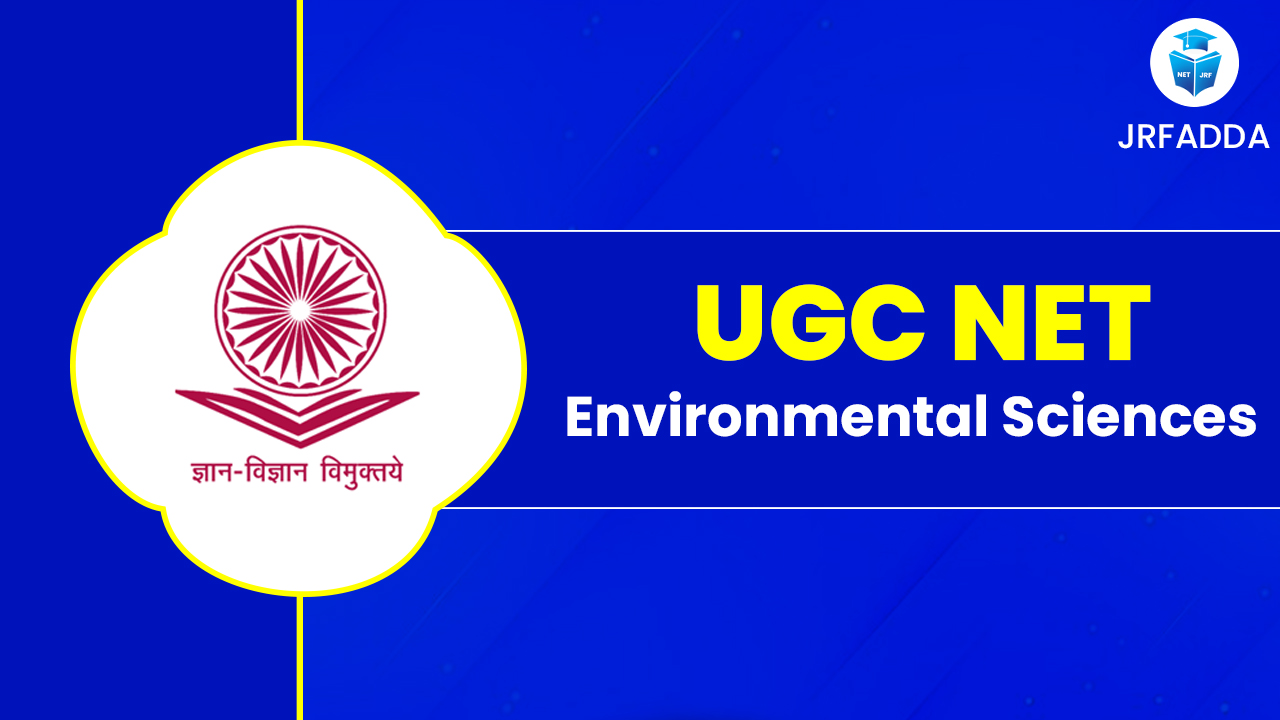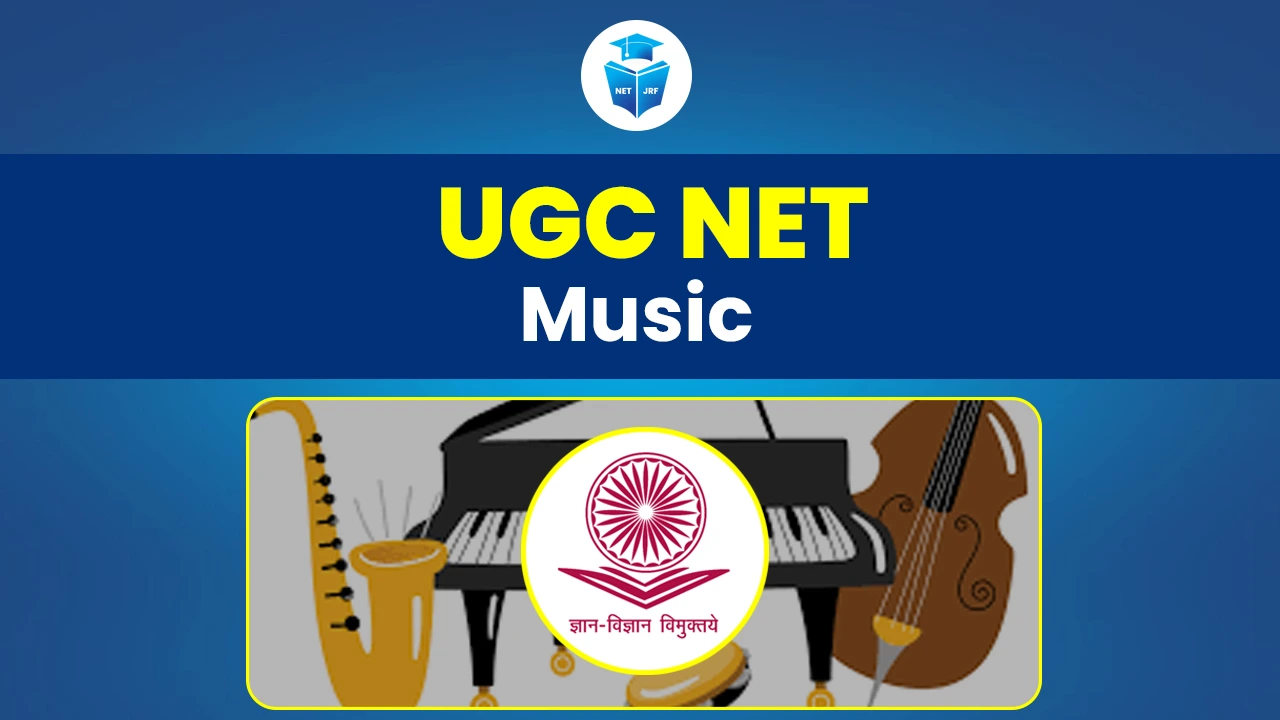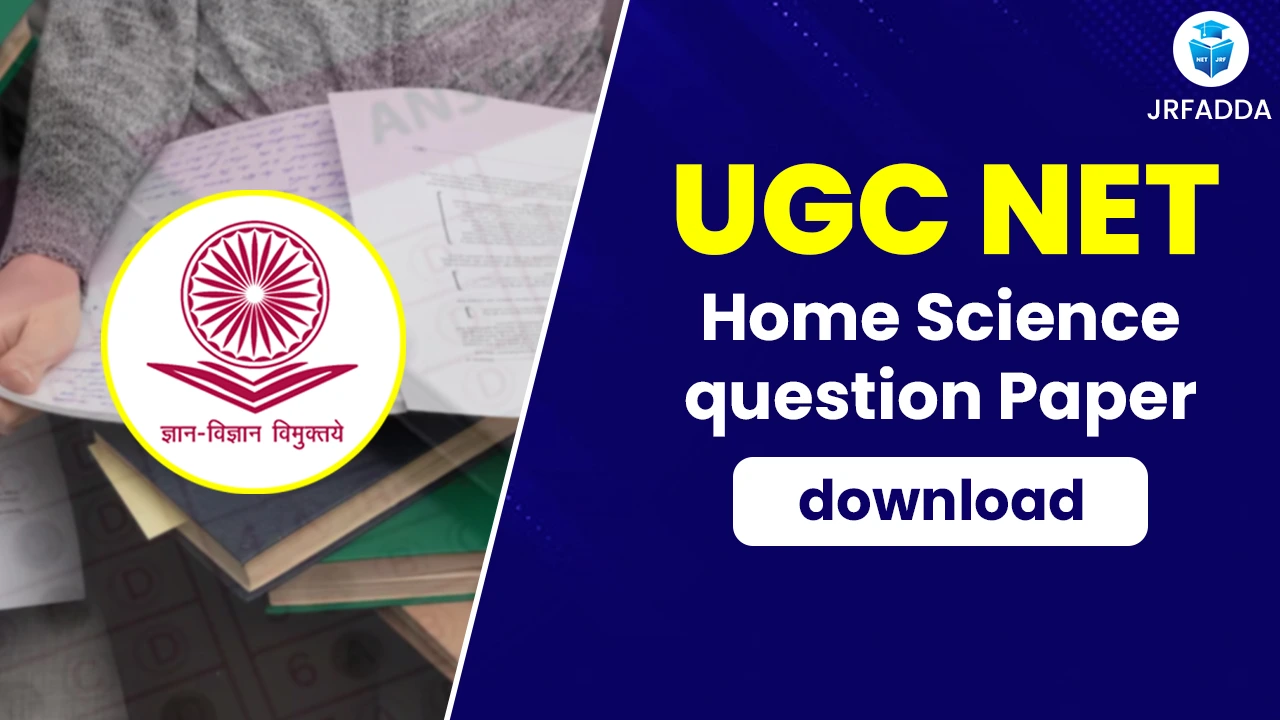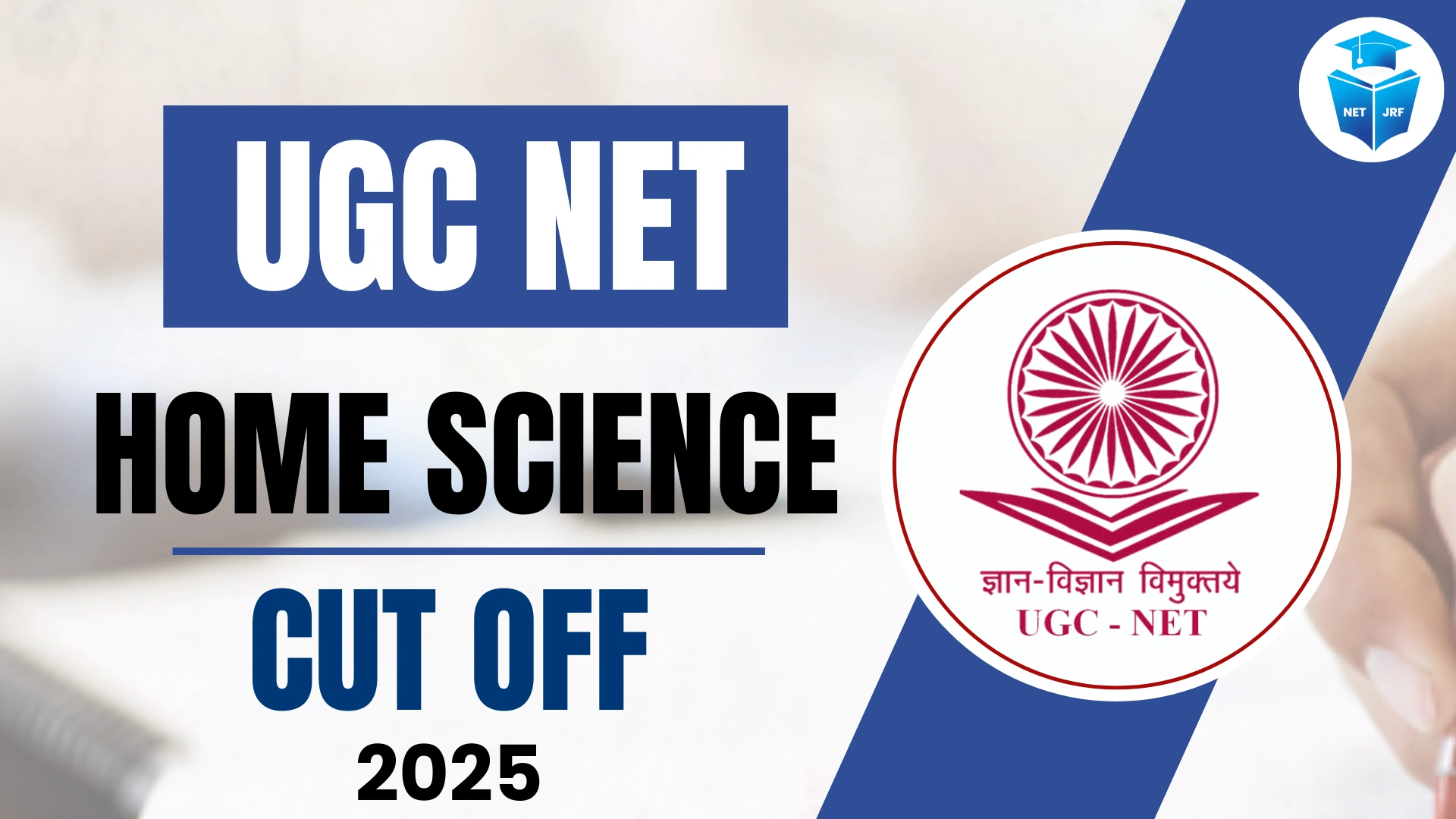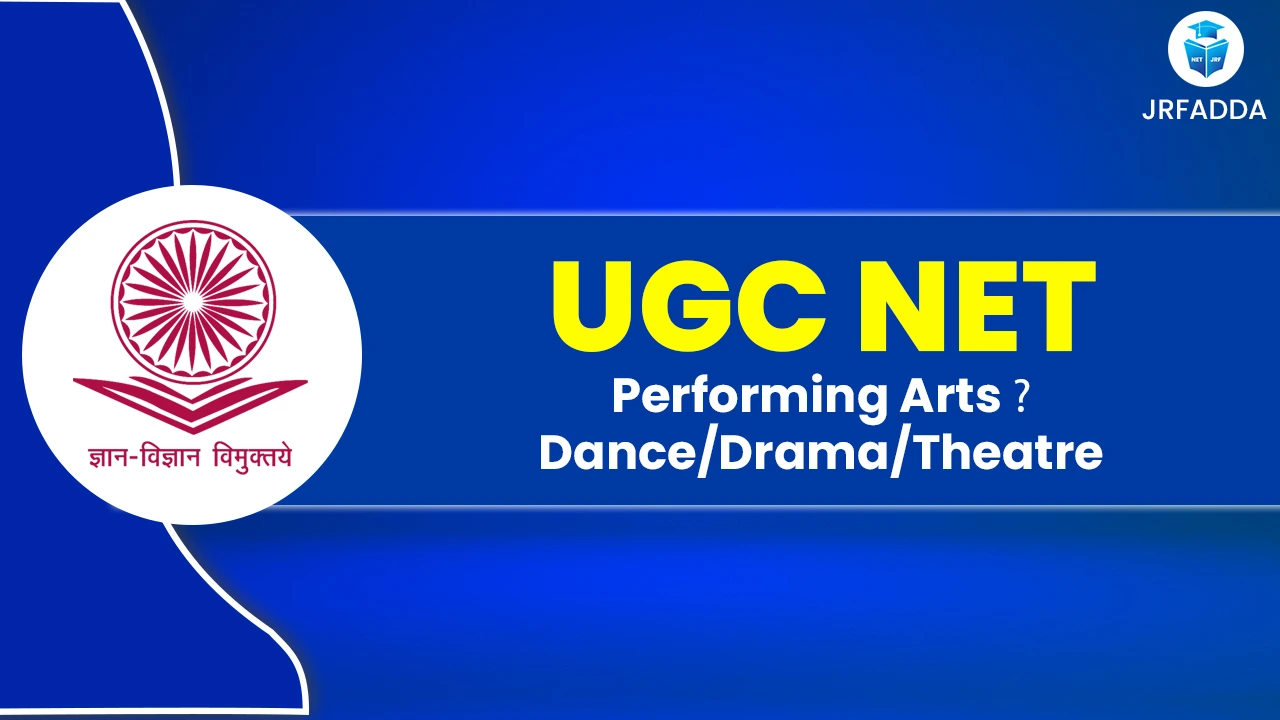UGC NET is a prestigious national-level examination conducted by the National Testing Agency (NTA) to determine the eligibility of candidates for the posts of Assistant Professor and for the award of Junior Research Fellowship (JRF) in Indian universities and colleges. The exam assesses candidates’ teaching aptitude, research skills, and subject-specific knowledge, making it a gateway to promising careers in academics and research. With a well-structured exam pattern and a wide range of subjects, UGC NET 2026 offers aspiring educators and researchers a significant opportunity to establish themselves in the field of higher education.
Also Read: UGC NET 2026
What is UGC NET?
The UGC NET is a qualifying exam that evaluates a candidate’s research, teaching, and subject-specific knowledge skills. It covers 85 subjects and is held twice a year in June and December. In order to be hired as an assistant professor at Indian colleges and universities and to be eligible for JRF grants for research, candidates must pass this exam.
Clearing the UGC NET 2026 makes candidates eligible for:
- The post of Assistant Professor in Indian universities and colleges.
- The prestigious Junior Research Fellowship (JRF), which provides financial support for doctoral and post-doctoral research.
Also Read: UGC NET Selection Procedure 2026
UGC NET Full Form
UGC NET stands for University Grants Commission – National Eligibility Test. It is a national exam conducted by NTA on behalf of UGC, a statutory body under the Indian government’s Ministry of Education. Eligibility for Assistant Professor and Junior Research Fellowship (JRF) positions in Indian colleges and universities is determined by the exam. Two papers—Paper 1 (teaching/research aptitude) and Paper 2 (subject-specific knowledge) are used to assess postgraduate candidates. In India’s higher education system, UGC NET is essential to maintaining academic standards and encouraging high-caliber research and instruction.
| Features |
Description |
| Full Form |
University Grants Commission – National Eligibility Test |
| Conducting Body |
National Testing Agency (NTA) |
| Organising Authority |
University Grants Commission (UGC), India |
| Exam Frequency |
Twice a Year (June & December) |
| Mode of Examination |
Online (Computer-Based Test) |
| Exam Duration |
3 Hours (No Break Between Papers) |
| Number of Papers |
2 No. of Papers: Paper I (General) & Paper II (Subject Specific) |
| Total Marks |
300 (Paper I – 100, Paper II – 200) |
| Subjects Offered |
85+ Subjects |
| Eligibility Criteria |
Master’s Degree with 55% (50% for SC/ST/OBC) |
| Age Limit for JRF |
Max 30 Years (Relaxation for Reserved Categories) |
| Age Limit for Assistant Professor |
No Age Limit |
| Official Website |
ugcnet.nta.ac.in |
Also Read: JRF Full Form 2026
UGC NET Important Dates: June & December Sessions
| Event |
December 2025 Session |
June 2026 Session |
| Notification Release Date |
7 October 2025 |
April 2026 (Expected) |
| Application Start Date |
7 October 2025 |
April 2026 (Expected) |
| Last Date to Apply |
7 November 2025 (Closed) |
TBA |
| Fee Payment Deadline |
7 November 2025 (Closed) |
TBA |
| Application Correction Window |
10- 12 November 2025 (Closed) |
TBA |
| Admit Card Release |
27 December 2025 |
TBA |
| Exam Dates |
31 December 2025- 7 January 2026 |
TBA |
| Answer Key Release |
February 2026 (Expected) |
TBA |
| Result Declaration |
February 2026 (Expected) |
TBA |
Also Read: UGC NET 2026 Notification
UGC NET 2026 Exam for Which Job?
The UGC NET 2026 (University Grants Commission – National Eligibility Test) is an important exam for candidates aspiring to build a career in the field of higher education and research in India. It primarily serves as a gateway for two important roles:
Assistant Professor
Candidates can apply for assistant professor positions in Indian colleges and universities after passing the UGC NET exam. Teaching undergraduate and graduate students, supervising research projects, and advancing academic advancement are all part of this role. Candidates who apply for Assistant Professor positions using their UGC NET qualification have no upper age limit.
Junior Research Fellowship (JRF)
UGC NET provides research opportunities in addition to teaching. Those who pass the JRF eligibility exam are awarded fellowship grants to fund their research, which typically results in a PhD or other advanced degree. By providing financial support, this fellowship enables scholars to concentrate fully on their research. With exceptions for reserved categories, the maximum age limit for JRF is 30 years old.
Why is UGC NET 2026 Important for Jobs?
The UGC NET exam is a nationally recognized eligibility requirement for hiring assistant professors and for granting junior research fellowships in Indian universities and colleges. The UGC NET qualification has been regarded as an indicator of academic excellence and subject-matter expertise by research organizations and higher education institutions.
Also Read: UGC NET Salary 2026
UGC NET 2026 Career Options
Several fulfilling career paths in academia and research throughout India are made possible by passing the University Grants Commission National Eligibility Test or UGC NET. The following are well-known career paths open to UGC NET qualified applicants:
College and university assistant professors
You can work as an assistant professor at universities, colleges, and other educational establishments across India if you pass the UGC NET exam. This position includes mentoring students, developing curriculum, teaching, and participating in the academic community.
Junior Research Fellowship (JRF)
Research in their chosen field can be pursued full-time by candidates who meet the requirements for JRF. Scholars can concentrate on their research without financial worries to the fellowship’s financial support for doctoral studies (PhD) or other advanced research projects.
Research Scientist/Research Associate
You can work as a Research Associate or Research Scientist in a variety of research organizations, academic institutions, government agencies, and private sector research centers after earning your UGC NET qualification.
PhD and Post-Doctoral Research
UGC NET JRF holders are eligible to apply for prestigious post-doctoral research positions supported by both domestic and foreign organizations, as well as to enroll in PhD programs at top colleges and universities.
Government Jobs and Higher Education Institutes
Candidates with UGC NET qualifications are needed for research, teaching, and academic administration positions in a number of government agencies, public sector projects, and higher education organizations.
Content Development and Educational Publishing
Additionally, qualified candidates can look into opportunities in curriculum design, educational publishing, and content writing, contributing to textbooks, e-learning platforms, and academic materials.
Also Read: Career Options After UGC NET
Difference Between UGC NET and CSIR NET
The CSIR NET and UGC NET are esteemed national eligibility exams conducted in India to determine a candidate’s suitability for research fellowships and lectureships. However, they differ significantly in their scope, subjects, conducting bodies, and eligibility criteria.
| Aspect |
UGC NET |
CSIR NET |
| Full Form |
University Grants Commission – National Eligibility Test |
Council of Scientific and Industrial Research – National Eligibility Test |
| Conducting Body |
National Testing Agency (NTA) on behalf of UGC |
CSIR (Council of Scientific and Industrial Research) |
| Scope of Subjects |
Primarily humanities, social sciences, commerce, management, education, and some science subjects |
Science subjects like Physics, Chemistry, Life Sciences, Earth Sciences, and Mathematical Sciences |
| Purpose |
To determine eligibility for Assistant Professor and Junior Research Fellowship (JRF) in universities and colleges across India |
To determine eligibility for JRF and Lectureship in scientific research and academic institutions |
| Frequency |
Twice a year (June and December sessions) |
Usually once a year (typically in June) |
| Eligibility Criteria |
Master’s degree in relevant subject with minimum 55% marks (50% for reserved categories) |
Master’s degree in science subjects with at least 55% marks (50% for reserved categories) |
| Exam Pattern |
Two papers – Paper I (General Aptitude), Paper II (Subject Specific) |
Single paper based on the candidate’s chosen science subject area |
| Career Opportunities |
Assistant Professor, JRF, research and teaching roles in arts, commerce, social sciences, education, and science |
JRF and Lectureship in scientific research, R&D organizations, universities, and government labs |
Also Read: Difference Between CSIR NET and UGC NET
UGC NET 2026 Eligibility Criteria
The University Grants Commission National Eligibility Test (UGC NET) is a highly competitive exam that sets the standard for determining eligibility for Assistant Professor and Junior Research Fellowship (JRF) positions in Indian universities and colleges. Candidates must meet specific eligibility requirements, such as age restrictions and educational requirements, in order to qualify for the UGC NET 2026.
UGC NET 2026 Educational Qualification
- Candidates must have graduated from an accredited university or institution with a Master’s degree or its equivalent.
- The degree must be in one of the subjects covered in the UGC NET curriculum.
- For candidates in the general category, a minimum cumulative score of 55% is needed for the Master’s degree.
- There is a 5% relaxation for candidates who fall into the SC, ST, OBC (Non-Creamy Layer), PwD, and Third Gender categories; therefore, they need to have received at least 50% of the possible score.
- Applicants may also be those who have taken their final year or semester exam and are awaiting their results. However, before being awarded the JRF or Assistant Professor position, they must finish their Master’s degree with the required marks.
UGC NET 2026 Age Limit
- Junior Research Fellowship (JRF): Maximum age limit is 30 years as of the exam date. Age relaxation is provided as per government norms:
- Up to 5 years for SC/ST/OBC (Non-Creamy Layer)/PwD/Third Gender candidates.
- Up to 3 years for female candidates.
- Assistant Professor: There is no upper age limit to apply for Assistant Professor eligibility.
Also Read: UGC NET 2026 Age Limit
Nationality for UGC NET 2026
The applicant needs to be a citizen of India. Candidates of other nationalities may, however, participate if they fulfill the requirements established by the organizing body.
Other Important Points
- Candidates with a professional degree that has been considered to be 55% equivalent to a Master’s degree are also eligible.
- The relaxation of eligibility requirements strictly complies with government and UGC regulations.
- Candidates must choose the subject of their Master’s degree for Paper II of the exam.
Also Read: UGC NET Eligibility Criteria 2026
UGC NET 2026 Exam Pattern
The purpose of the UGC NET exam is to evaluate applicants’ suitability for Assistant Professor and Junior Research Fellowship (JRF) positions in Indian colleges and universities. Effective preparation requires an understanding of the exam pattern. A overview of the UGC NET 2026 Exam Pattern is provided below:
| Aspect |
Details |
| Mode of Exam |
Online (Computer-Based Test) |
| Number of Papers |
2 Papers (Paper I & Paper II) |
| Exam Duration |
3 Hours (No break between Paper I & II) |
| Question Type |
Multiple Choice Questions (MCQs) |
| Number of Questions |
Paper I: 50 questions
Paper II: 100 questions |
| Marks per Question |
2 marks per question |
| Total Marks |
Paper I: 100 marks
Paper II: 200 marks |
| Negative Marking |
None |
| Paper I Syllabus |
Teaching Aptitude, Research Aptitude, Reading Comprehension, Communication, Reasoning, ICT, People & Environment, Higher Education System |
| Paper II Syllabus |
Subject-specific based on candidate’s chosen subject (85+ subjects available) |
| Exam Frequency |
Twice a Year (June and December sessions) |
Also Read: UGC NET Exam Pattern 2025
UGC NET 2026 Syllabus
The UGC NET 2026 syllabus is intended to evaluate candidates’ subject-specific knowledge in addition to their general teaching and research skills. To maintain relevance and alignment with contemporary academic standards, the National Testing Agency (NTA) updates the syllabus on a regular basis.
Before starting their preparation, candidates are encouraged to carefully go through the official UGC NET Syllabus 2026 that is posted on the official UGC NET website and here. There are two papers in the UGC NET 2026 exam:
UGC NET Paper 1 General Paper
UGC NET 2026 Paper 1 is a general paper that is common for all candidates:
- It includes units like teaching aptitude, research aptitude, reading comprehension, communication, reasoning, logical thinking, information and communication technology (ICT), people and the environment, and the higher education system.
- This exam assesses the candidate’s awareness of the educational environment as well as their comprehension of the teaching and research processes.
UGC NET Paper 2 – Subject Specific
Paper 2 of the UGC NET 2026 exam is based on the candidate’s chosen discipline:
- Paper 2 has a total of 85 courses in the arts, humanities, social sciences, commerce, science, and other subjects.
- In-depth knowledge of the subject is evaluated in this paper.
Also Read: UGC NET Syllabus 2025
UGC NET Paper 1 Syllabus Topics
Paper 1 of the UGC NET 2026 is a general paper, and the UGC NET Paper 1 syllabus covers the following topics:
| Units |
Details |
| Teaching Aptitude |
Understanding teaching-learning processes, objectives, methods, and evaluation |
| Research Aptitude |
Research methods, steps, ethics, types, and research proposal writing |
| Reading Comprehension |
Understanding, analyzing, and interpreting texts |
| Communication |
Types, barriers, effective communication, and academic communication |
| Reasoning (Including Mathematical) |
Logical reasoning, analytical reasoning, numerical ability, and problem-solving |
| Logical Reasoning |
Patterns, sequences, analogies, and critical thinking |
| Data Interpretation |
Graphs, tables, charts, and data analysis |
| Information and Communication Technology (ICT) |
Basics of computer knowledge, internet, software, and digital resources |
| People and Environment |
Environmental awareness, sustainable development, and social issues |
| Higher Education System |
Structure, governance, policies, and challenges in Indian higher education |
UGC NET Paper 2 Syllabus
The UGC NET Paper 2 is subject-based and covers a total of 85 subjects. The subjects under UGC NET 2026 are as follows:
| Subject Code |
Subject |
Brief Syllabus |
| 1 |
Economics |
Micro & Macro Economics, Indian Economy, Public Finance, International Economics |
| 2 |
Political Science |
Political Theory, Indian Politics, Comparative Politics, International Relations |
| 3 |
Sociology |
Sociological Theories, Indian Society, Research Methods, Social Change |
| 4 |
History |
Ancient, Medieval, Modern Indian History, World History, Historiography |
| 5 |
Commerce |
Accounting, Business Law, Finance, Marketing, Management |
| 6 |
Education |
Philosophy of Education, Psychology, Curriculum Studies, Educational Technology |
| 7 |
English |
British Literature, American Literature, Literary Theory, Linguistics |
| 8 |
Hindi |
Hindi Literature, Grammar, Modern Poetry & Prose, Literary Criticism |
| 9 |
Philosophy |
Indian & Western Philosophy, Logic, Ethics, Contemporary Indian Thought |
| 10 |
Geography |
Physical Geography, Human Geography, Geographical Thought, GIS & Remote Sensing |
| 11 |
Law |
Constitutional Law, Jurisprudence, IPC, International Law, Environmental Law |
| 12 |
Psychology |
Cognitive Psychology, Social Psychology, Clinical Psychology, Research Methods |
| 13 |
Library and Information Science |
Information Sources, Services, Management, IT Applications |
| 14 |
Management |
Organizational Behavior, HRM, Marketing, Finance, Strategic Management |
| 15 |
Bengali |
Bengali Literature, Language, Grammar, Criticism |
| 16 |
Hindi (Second Paper) |
Advanced Hindi Language & Literature topics |
| 17 |
Anthropology |
Physical Anthropology, Social Anthropology, Archaeological Anthropology |
| 18 |
Commerce (Second Paper) |
Advanced Topics in Commerce & Business Studies |
| 19 |
Economics (Second Paper) |
Advanced Economics and Applied Economics Topics |
| 20 |
History (Second Paper) |
Specialization in Indian/World History |
| 21 |
Home Science |
Food & Nutrition, Human Development, Family Studies, Textile |
| 22 |
Kannada |
Kannada Literature, Criticism, Grammar |
| 23 |
Malayalam |
Malayalam Literature, Criticism, Grammar |
| 24 |
Odia |
Odia Literature, Language, Poetics |
| 25 |
Punjabi |
Punjabi Literature, Language, Literary Movements |
| 26 |
Sanskrit |
Vedic Literature, Classical Sanskrit, Grammar, Poetry |
| 27 |
Tamil |
Tamil Literature, Grammar, Classical & Modern Texts |
| 28 |
Telugu |
Telugu Literature, Grammar, Poetics |
| 29 |
Urdu |
Urdu Poetry & Prose, Grammar, Literary History |
| 30 |
Arabic |
Classical & Modern Arabic, Translation, Grammar |
Also Read: UGC NET Political Science Syllabus 2025
UGC NET 2026 Subjects List – Paper 2 (85)
Candidates can appear in the subject of their post-graduation choice because UGC NET Paper 2 is subject-specific and covers 85 different subjects. Paper 2 evaluates the applicant’s basic knowledge of the theories, concepts, and research skills associated with their field of study. The NTA assigns a distinct subject code to each subject, which candidates must carefully select when completing the UGC NET 2026 Application Form.
Also Read: UGC NET Subject List 2026
How Many Papers in UGC NET 2026?
UGC NET 2026 has two papers:
- Paper 1 – Common for all candidates.
- Paper 2 – Subject-specific.
There is no break in between the two papers that make up the UGC NET. These objective-type papers are intended to evaluate the candidate’s research and teaching skills as well as subject-matter expertise.
| Paper |
Description |
Total Questions |
Total Marks |
Duration |
| Paper I |
General Paper on Teaching & Research Aptitude |
50 |
100 |
1 Hour |
| Paper II |
Subject-Specific Paper (based on selected subject) |
100 |
200 |
2 Hours |
| Total |
– |
150 Questions |
300 Marks |
3 Hours (No break) |
Also Read: UGC NET Notes 2026
UGC NET 2026 Minimum Qualifying Marks
Candidates must achieve the minimum qualifying marks established by the National Testing Agency (NTA) in order to be eligible for the Junior Research Fellowship (JRF) or Assistant Professor positions through the UGC NET 2026 exam. These marks are categorized based on the overall performance in both Paper I and Paper II and are grouped according to the candidate’s category.
| Category |
Minimum Qualifying Marks (Paper I + II) |
| General / Unreserved (UR) |
40% aggregate marks |
| OBC (Non-Creamy Layer) |
35% aggregate marks |
| SC / ST |
35% aggregate marks |
| PwD / Transgender |
35% aggregate marks |
Also Read: UGC NET Cut Off Marks 2025
UGC NET Previous Year Question Papers
One of the best resources for candidates preparing for the UGC NET 2026 exam is the UGC NET Previous Year Question Papers. Candidates can better understand the exam format, question types, degree of difficulty, and main areas of focus in various subjects by using these papers.
Benefits of Solving UGC NET Previous Year Question Papers
Preparing for the UGC NET 2026 exam by regularly solving UGC NET Previous Year Question Papers has many benefits, some of which are listed below:
- Familiarity with Exam Pattern: Become familiar to the structure of both Paper I (General Aptitude) and Paper II (Subject-specific).
- Understand Question Trends: Determine common patterns and key areas from previous years.
- Increase Accuracy & Speed: Practice decreases errors and improves time management.
- Self-Assessment: Determine your areas of weakness and evaluate your level of preparation.
- Develop Confidence: Exam personality is developed and anxiety is decreased through realistic exam-like practice.
Also Read: UGC NET Previous Year Question Papers
UGC NET Application Process 2026
The UGC NET Application Process is conducted entirely online through the official website of the National Testing Agency. For both the June and December sessions, the procedure usually starts a few months prior to the exam date. Candidates must carefully follow the application instructions to prevent errors or rejection.
How to Apply for UGC NET 2026?
Below are the details to complete the UGC NET 2026 application form:
- Go to the Official Website
- Registration: Click on the link “UGC NET Registration”.
- Enter personal details like name, email, and mobile number.
- Set a password and security question.
- Complete the UGC NET 2026 Application Form.
- Enter academic qualifications, subject option, and preference of exam center.
- Upload scanned photograph and signature according to the provided format.
Also Read: UGC NET 2026 Application Form
Payment of UGC NET Application Fee 2026
Pay the UGC NET 2026 application Fee online using debit/credit card, UPI, or net banking.
| Category |
Fee (₹) |
| General |
1,150/- |
| OBC-NCL/EWS |
600/- |
| SC/ST/PwD/Third Gender |
325/- |
UGC NET 2026 Exam Date
The UGC NET Exam Date 2025 for the December session is from 31 December 2025 to 7 January 2026 for 85 subjects, as per the official UGC NET 2025 December notification released by the National Testing Agency (NTA). This national-level exam is conducted twice a year to assess candidates for eligibility for the posts of Assistant Professor and the award of Junior Research Fellowship (JRF) in Indian universities and colleges.
| Feature |
Details |
| Exam Name |
UGC NET (University Grants Commission – National Eligibility Test) |
| Conducting Body |
National Testing Agency (NTA) |
| Exam Cycle |
December 2025 Session |
| Exam Dates |
31 December 2025 to 7 January 2026 |
| Mode of Exam |
Computer-Based Test (CBT) |
| Duration |
3 Hours (No break between Paper 1 and Paper 2) |
| Papers |
Paper 1 (General Aptitude), Paper 2 (Subject Specific) |
| Total Questions |
150 (Paper 1: 50, Paper 2: 100) |
| Total Marks |
300 (Paper 1: 100, Paper 2: 200) |
| Marking Scheme |
+2 for each correct answer, No Negative Marking |
| Languages |
English & Hindi (except for language-based subjects) |
Also Read: UGC NET Exam Date 2026
UGC NET 2026 Study Material
UGC NET 2026 preparation needs the appropriate study material, books, and online study resources for achieving success. Properly planned studies with genuine materials may contribute to the candidate’s success in Paper 1 (Teaching & Research Aptitude) and Paper 2 (Subject-Specific Topics).
UGC NET Free Online Study Material by JRFAdda
Exclusive Resources Available:
- Topic-wise Notes & Study PDFs
- Live & Recorded Classes by Experts
- MCQ Practice Sets & Quizzes
- Doubt-Solving Sessions
Also Read: UGC NET Study Material 2026
Benefits of Clearing the UGC NET/JRF Examination
Passing the UGC NET/JRF exam gives access to several career prospects in academics, research, and government institutions. It is a distinguished credential that brings professional development and financial security.
Also Read: Benefits of Clearing the UGC NET/JRF Examination
Preparation Tips for UGC NET 2026
Below are the preparation tips mentioned for UGC NET 2026 Exam:
- Understand the Syllabus & Exam Pattern: Read all subjects, giving more emphasis to weaker topics.
- Time Management: Fix particular hours every day for each paper.
- Use Quality Study Material: Use books by famous authors and UGC NET notes.
- Practice with Mock Tests & Previous Papers: JRFAdda offers free UGC NET mock tests.
- Revise Regularly: Weekly revisions keep key concepts in mind.
- Stay Updated: Keep track of UGC NET official notifications for updates.
- Healthy Routine: Keep a balance between study and rest.
Also Read: UGC NET Preparation Tips 2026
Conclusion
UGC NET exam is a major entry point for the candidates who want to become lecturers at the university level and researchers in India. Correct information about the pattern of the exam is necessary for correct preparation. Paper 1 tests teaching and research aptitude, common to all the candidates, and Paper 2 tests subject-wise knowledge. Both the papers are computer-based tests with objective type questions to make the assessment uniform and transparent. Correct preparation as per the pattern of the exam, time management, and practice can make you highly eligible for the exam. Stay updated with official UGC NET notifications and follow routine study to achieve success in the UGC NET 2026 exam.
UGC NET 2026 Exam FAQs
There are two papers on the UGC NET exam: Paper 1 (Teaching and Research Aptitude) and Paper 2 (Subject-specific).
No, neither Paper 1 nor Paper 2 contain any negative marking.
The duration of the exam lasts 3 hours total, Paper 1 is 1 hour long, and Paper 2 is 2 hours long.
Yes, the syllabus for Paper 1 is the same for all applicants and emphasizes research and teaching skills.
UGC NET Paper 2 must be selected based on the subject of your Master’s degree.

